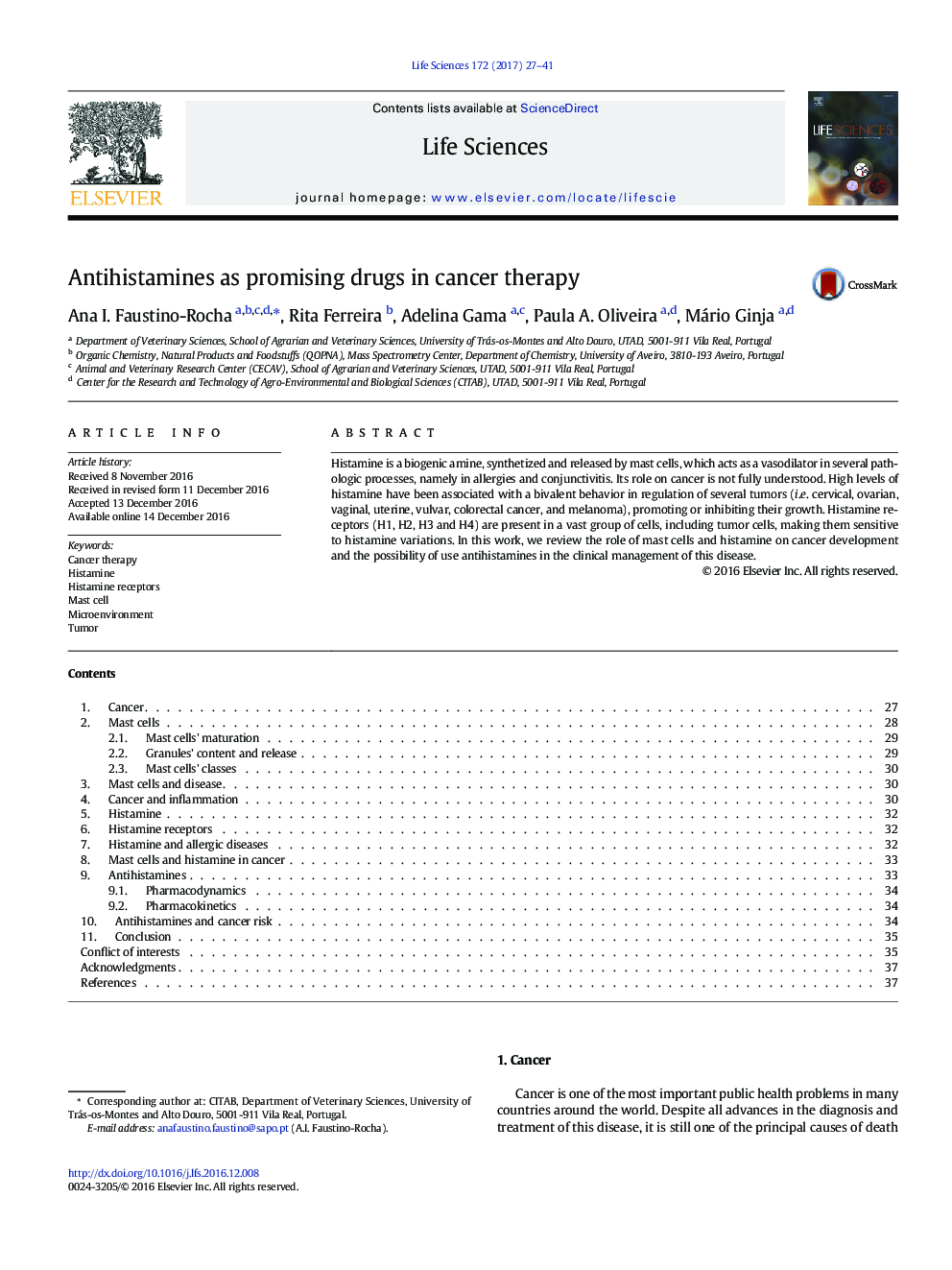| Article ID | Journal | Published Year | Pages | File Type |
|---|---|---|---|---|
| 5557059 | Life Sciences | 2017 | 15 Pages |
Histamine is a biogenic amine, synthetized and released by mast cells, which acts as a vasodilator in several pathologic processes, namely in allergies and conjunctivitis. Its role on cancer is not fully understood. High levels of histamine have been associated with a bivalent behavior in regulation of several tumors (i.e. cervical, ovarian, vaginal, uterine, vulvar, colorectal cancer, and melanoma), promoting or inhibiting their growth. Histamine receptors (H1, H2, H3 and H4) are present in a vast group of cells, including tumor cells, making them sensitive to histamine variations. In this work, we review the role of mast cells and histamine on cancer development and the possibility of use antihistamines in the clinical management of this disease.
Graphical abstractDownload high-res image (270KB)Download full-size image
